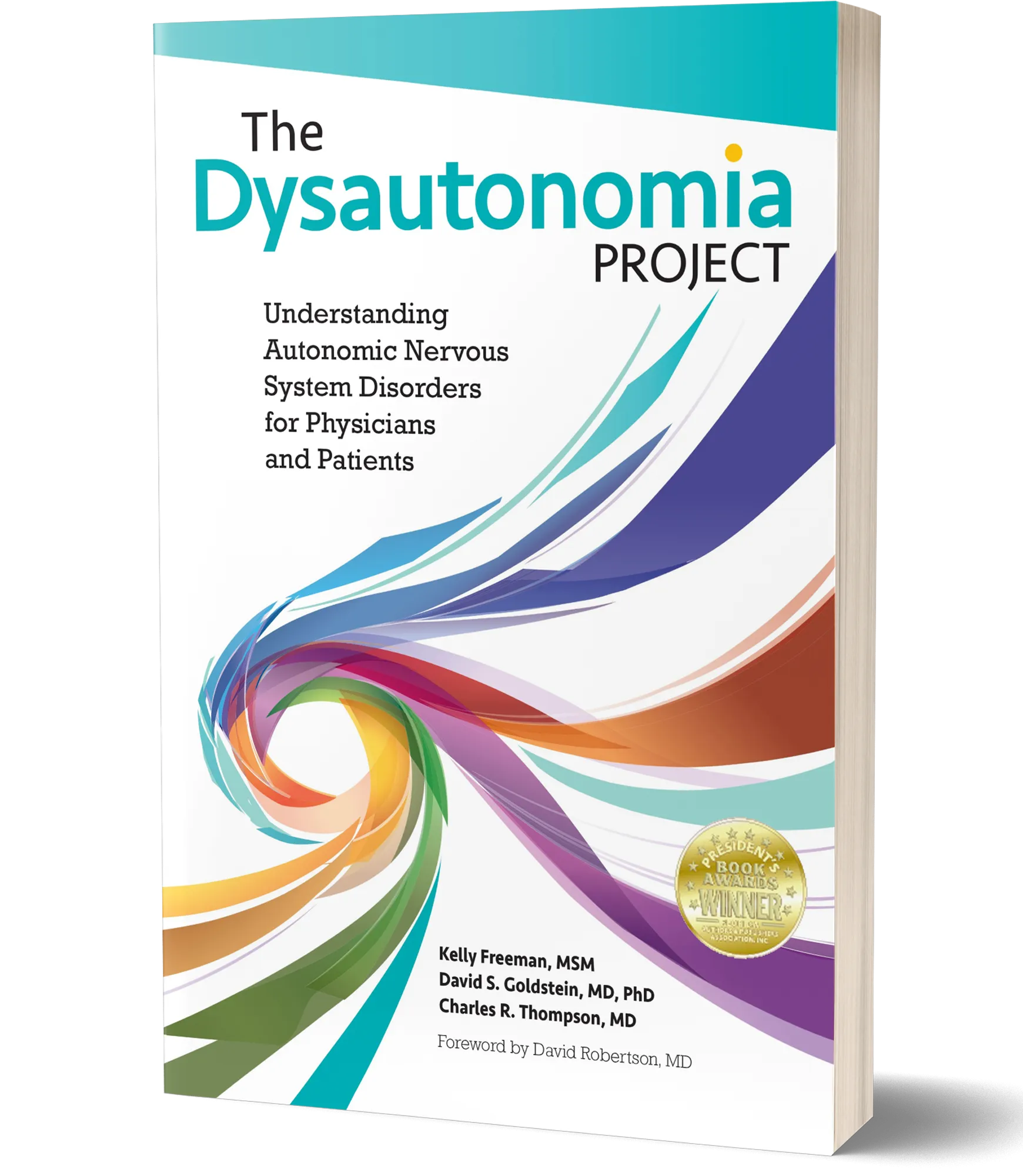Home » Managing Dysautonomias » “I don’t want it to be Dys!”
"I don't want it to be Dys!"
If you or a loved one has been suffering with multiple symptoms in multiple organ systems of the body, chances are good you’ve been making the rounds and seeing several local medical specialists. When your primary healthcare provider couldn’t figure out what was wrong, they may have referred you to these specialists, believing they could get to the root cause of the symptoms.
You or your loved one may be seeing a cardiologist for tachycardia, heart palpitations, or blood pooling in the legs, a gastroenterologist for inexplicable nausea, vomiting, and diarrhea, and a neurologist for migraines and brain fog. Although each one has identified your symptoms and is trying to treat them, they still can’t tell you why they’re happening. When a new symptom appears, you wonder where you should turn. Do you go back to the primary provider or call the next specialist?
Trying to find answers is exhausting and frustrating. Accepting the symptoms as the final diagnosis seems like giving up, but continuing the search for someone who can explain the source of these mysterious symptoms isn’t appealing either. After all, what if you can’t find an answer, or worse yet, the diagnosis is something you don’t want to hear.
If you’re reading this and you think you or your loved one may have an autonomic nervous system disorder, you may find yourself thinking, “I don’t want it to be DYS.” Perhaps someone has told you about dysautonomia, and you feel like ignoring them and/or the facts because frankly, it scares you. If you’ve been recently diagnosed with an autonomic disorder, you may feel like burying your head in the sand and wishing it away. You aren’t the first or the last person to struggle with the fear of a certain diagnosis.
For some people, finally receiving a diagnosis is a big relief, but it also comes with a host of other emotions: fear, sadness, anxiety. We understand that a diagnosis of a chronic illness with no cure is scary, especially one that is so complex and few medical professionals understand. It can create feelings of helplessness. Nobody wants a chronic illness. No parent wants to see their child struggle with a dysautonomia. If this is where you are, first, let us say, we understand. We know this is not easy. And you’re not alone.
At TDP we interact with patients and family members at all stages on this journey. We’ve seen first-hand the toll it takes. We understand dreading an autonomic disorder diagnosis and even wanting to live in denial that this might be the root cause of your health issues or your child’s symptoms. It’s ok to struggle with fear and concerns about the unknown. It’s ok to take time to process this–to sit with a friend, loved one, or even a counselor and talk about your feelings or plan your next steps.
If you think you or a loved one might have dysautonomia, the first thing we suggest doing, when you’re ready, is learning about the symptoms of dysautonomia. There are several resources on this site including an in-depth article, Understanding Dysautonomia, and a book written for patients and physicians, The Dysautonomia Project. If after reading about the symptoms, your first thought is “this sounds like me or my child,” we recommend the following:

Undiagnosed Patients & Pediatric Patients
- Utilize the Autonomic Disorders Assessment: This assessment allows undiagnosed patients to screen their symptoms to determine if they have a higher or lower risk for an autonomic disorder. Patients can print a report that summarizes their symptoms and take it to their provider. Diagnosed patients can record their symptoms, print a report, and save that data for when they login to see trends in their symptoms over time.
- The next most important thing to do is to find a provider who understands dysautonomia and determine if you’re dealing with an autonomic disorder. If you’re a parent of a patient who has symptoms consistent with an autonomic disorder and need a pediatrician, there are several listed in our Find a Provider database.
- As you wait for you appointment, we recommend reading this article: The Undiagnosed Patient or Pediatric Patients. These articles outline steps you can take as you prepare for you doctor appointment.
Recently Diagnosed Dysautonomia Patients
- Allow yourself the time and space you need to adjust to this diagnosis. No one expects you to just accept it and be ok with it. Recognize that coming to terms with having a chronic illness is a process. You’re likely to feel many emotions: fear, anger, sadness, and yes, even hopefulness as you begin to move forward and find answers and helpful treatments. Acceptance may take time.
- Don’t go it alone. Reach out for support. Research shows that having social support systems leads to better health, fewer psychological issues, and improved healthcare decision making.
- Educate yourself. TDP promotes education as the number one treatment. Check out this article: The Recently Diagnosed Patient. It outlines the steps you can take as you learn to live with dysautonomia and find treatments that work for your symptoms.
Hold On to Hope
Dealing with symptoms, getting a diagnosis, and learning to live with dysautonomia will have its ups and downs. TDP exists to bring hope to dysautonomia patients. Our goal is to decrease the time it takes for patients to receive a diagnosis and treatment by educating providers and patients. We collaborate with the American Autonomic Society, so we can bridge the gap between their autonomic experts and community-based providers and patients, making sure the information gets into the hands of those who need it most. You can start finding answers and a path of hope on this website. Start here: For Patients
Related Articles:































